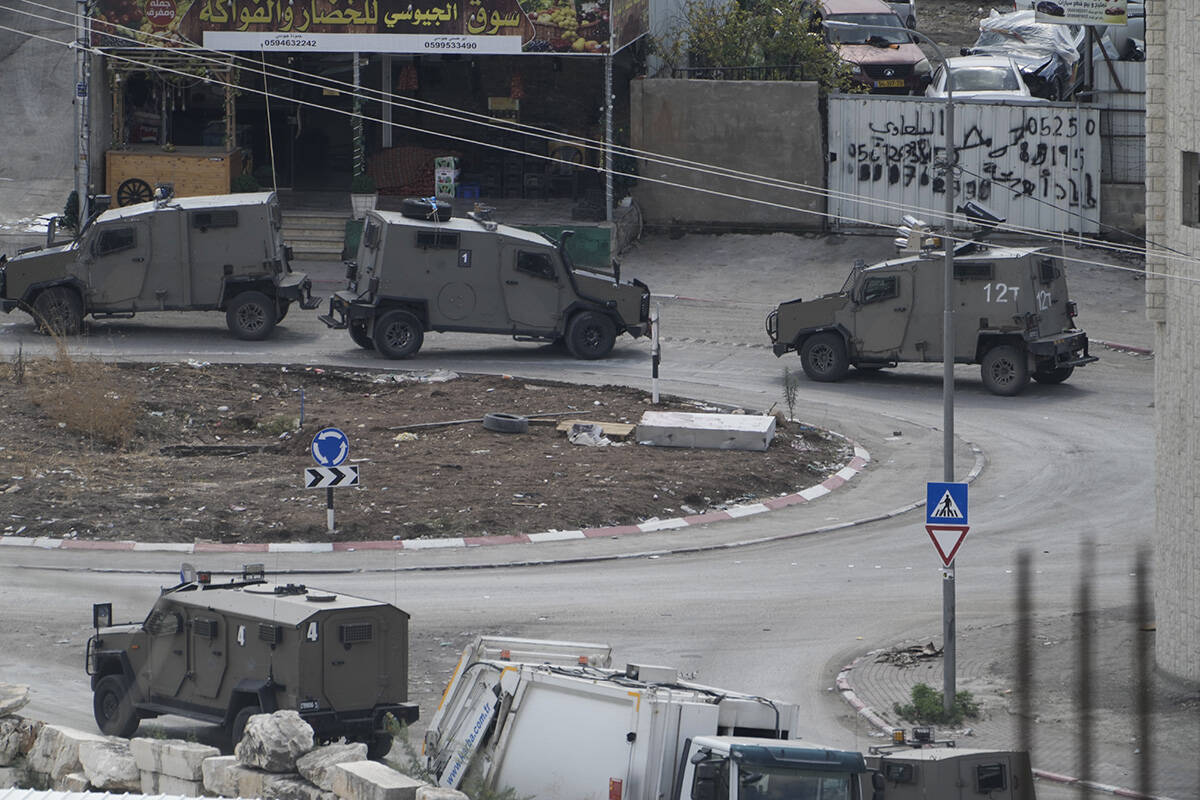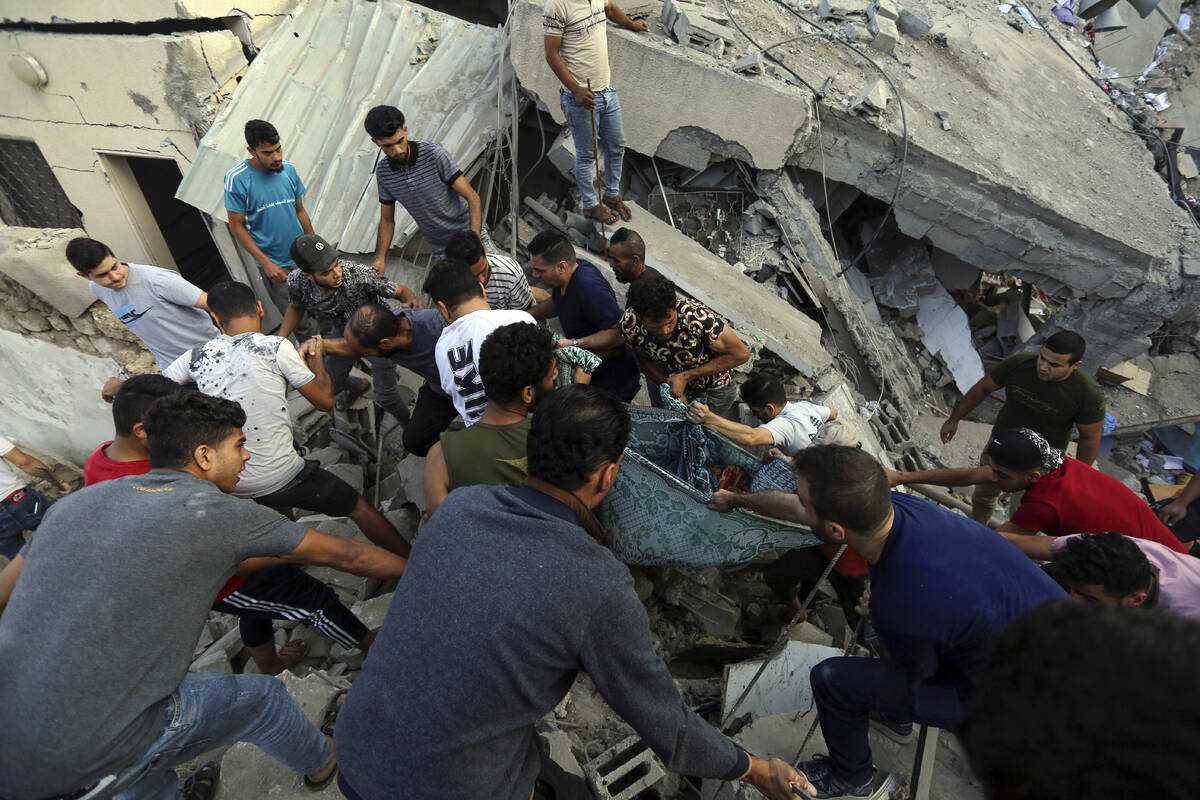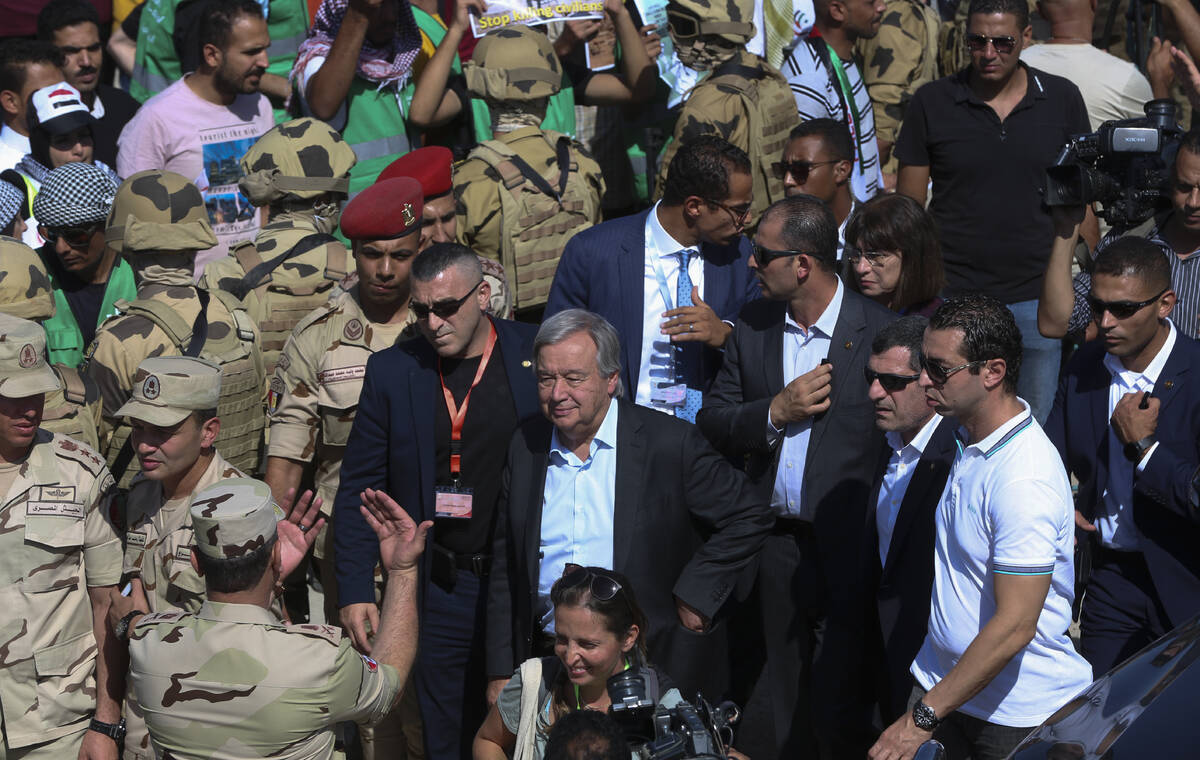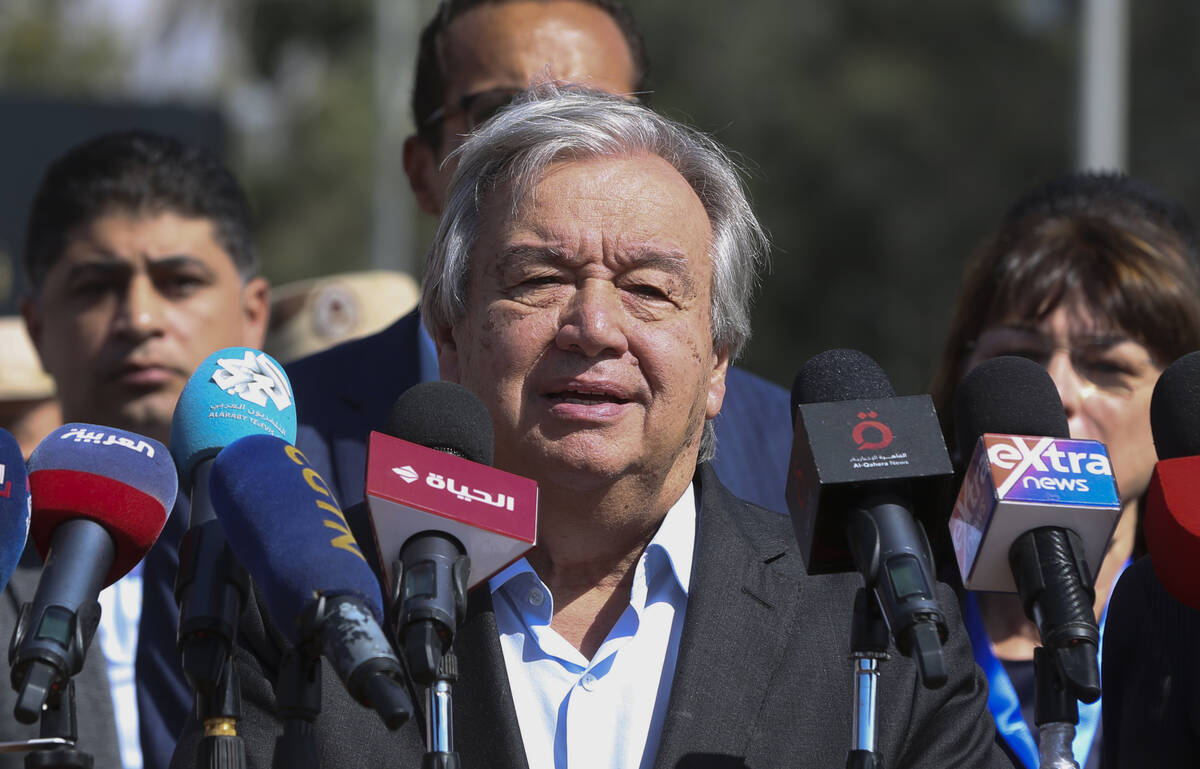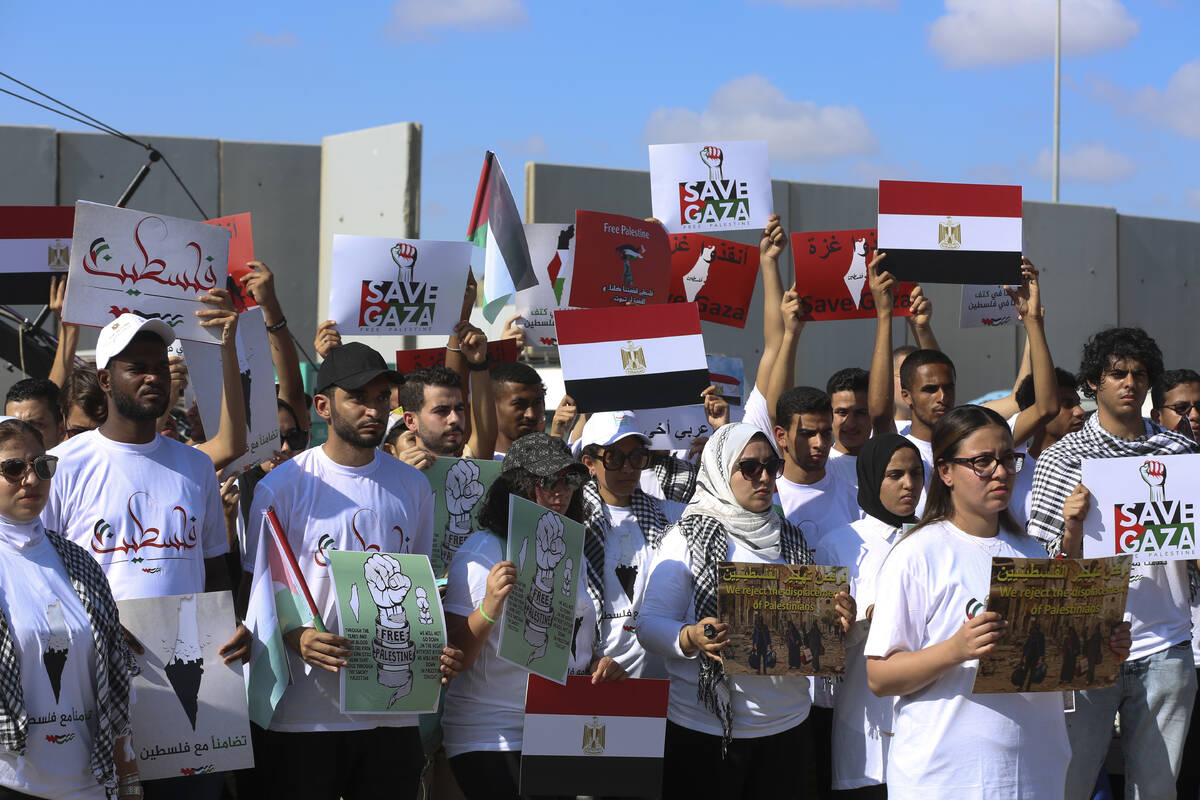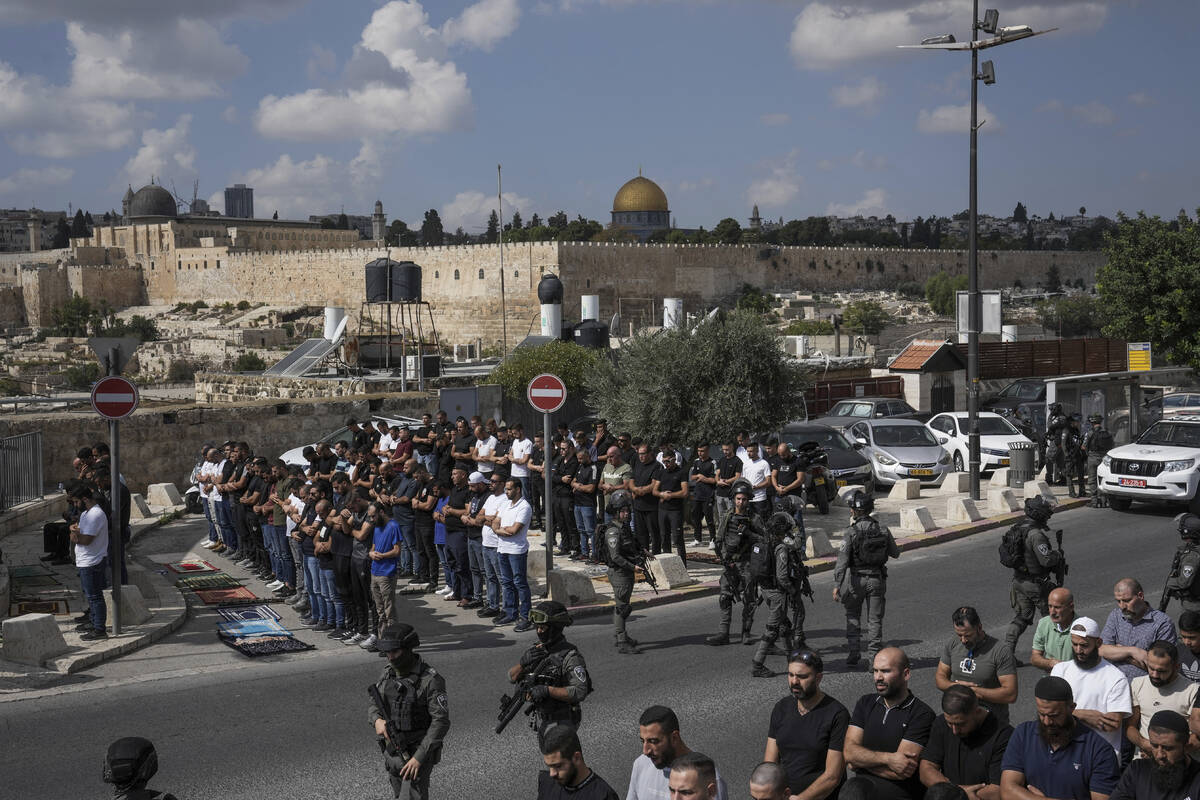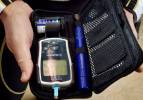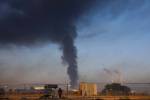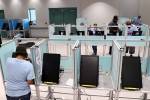Israeli defense minister: No plans to control ‘life in the Gaza Strip’
JERUSALEM — Israel’s defense minister said Friday that after the country destroys the Hamas terrorist group, the military does not plan to control “life in the Gaza Strip.”
Defense Minister Yoav Gallant’s comments to lawmakers were the first time an Israeli leader discussed its long-term plans for Gaza after the current war ends.
Gallant said Israel expected there to be three phases to the war started by Hamas. He said it first would attack the group in Gaza with airstrikes and ground maneuvers, then it would defeat pockets of resistance, and finally it would cease its “responsibility for life in the Gaza Strip.”
Meanwhile, there has been no notable progress toward the release of about 200 hostages taken from Israel by Hamas during their Oct. 7 assault on Israel. The release of those hostages could speed aid to Palestinians in Gaza. Hamas says an additional 50 hostages are held by other armed groups, and that more than 20 hostages have been killed by Israeli airstrikes. Israel says 30 of the hostages are teenagers and young children and 20 are over the age of 60, according to Reuters.
Reuters reported Friday that Hamas has suggested the hostages could be swapped for approximately 6,000 Palestinians held in Israeli prisons.
Satellite photos analyzed Friday by The Associated Press show a massive convoy of semitruck trailers lined up at the Rafah border crossing on the Egyptian side, likely waiting for approval to cross into the besieged Gaza Strip as the Israel-Hamas war rages.
The images, shot Thursday by Planet Labs PBC, show 55 trucks waiting in two lines, just half a kilometer (a third of a mile) away from the border. There are over 50 smaller vehicles visible in the image as well, many appearing to be with aid organizations, waiting at the crossing.
The Gaza Strip, home to over 2 million Palestinians, has been cut off from food, water, fuel and electricity by Israel since Hamas’ brutal surprise attack, which killed more than 1,400 Israelis, mostly civilians. Israel has vowed to isolate Gaza until hostages are released.
There have been days of high-level negotiations over aid getting into the besieged seaside enclave. U.N. Secretary-General Antonio Guterres has arrived in northern Sinai as the world body works on getting aid through, said Jens Laerke, spokesman for the U.N. Office for the Coordination of Humanitarian Affairs.
The deal to get aid into Gaza through Rafah, the territory’s only crossing not controlled by Israel, remains fragile. Israel said the supplies could only go to civilians and that it would “thwart” any diversions by Hamas. More than 200 trucks and some 3,000 tons of aid were positioned at or near Rafah.
Work began Friday to repair the road at the crossing that had been damaged in airstrikes, with trucks unloading gravel and bulldozers and other road repair equipment filling in large craters.
Summit calls for cease-fire
RIYADH, Saudi Arabia — Arab Gulf and southeast Asian nations are calling for a cease-fire in the Israel-Hamas war and the entry of humanitarian aid to Gaza.
The final statement of a summit hosted by Saudi Arabia on Friday also condemns “all attacks against civilians.”
The joint summit of the Gulf Cooperation Council and the Association of Southeast Asian Nations brought together 16 member states.
Saudi Arabia, which has launched a number of diplomatic initiatives across the Middle East over the past year, has called for a halt to the fighting.
Before the outbreak of the war, the kingdom had been in talks with the United States on normalizing relations with Israel in exchange for a U.S. defense pact, help in establishing a civilian nuclear program and unspecified concessions to the Palestinians.
U.N.: Palestinians returning home
GENEVA — A spokesperson for the U.N. human rights office says there are new signs that some Palestinians who initially moved south in response to the Israeli order to evacuate are returning to their homes because Israeli strikes are taking place in the south, too.
“We remain very concerned that Israeli Forces’ heavy strikes are continuing across Gaza, including in the south,” Ravina Shamdasani told reporters. “The strikes, coupled with extremely difficult living conditions in the south, appear to have pushed some to return to the north, despite the continuing heavy bombing there.”
Emhoff meets survivor of attack
Douglas Emhoff, the husband of U.S. Vice President Kamala Harris, met in Washington with Natalie Sanandaji, a 28-year-old American survivor of Hamas’ Oct. 7 attacks in Israel.
Sanandaji recounted the attack on a music festival, where some 260 people were killed, a White House official said.
Emhoff, who is Jewish and has been outspoken about and against antisemitism, spoke to Sanandaji about President Joe Biden and Harris’ support for Israel, providing humanitarian aid to civilians and the administration’s work to combat hate of all kinds, the official said.



